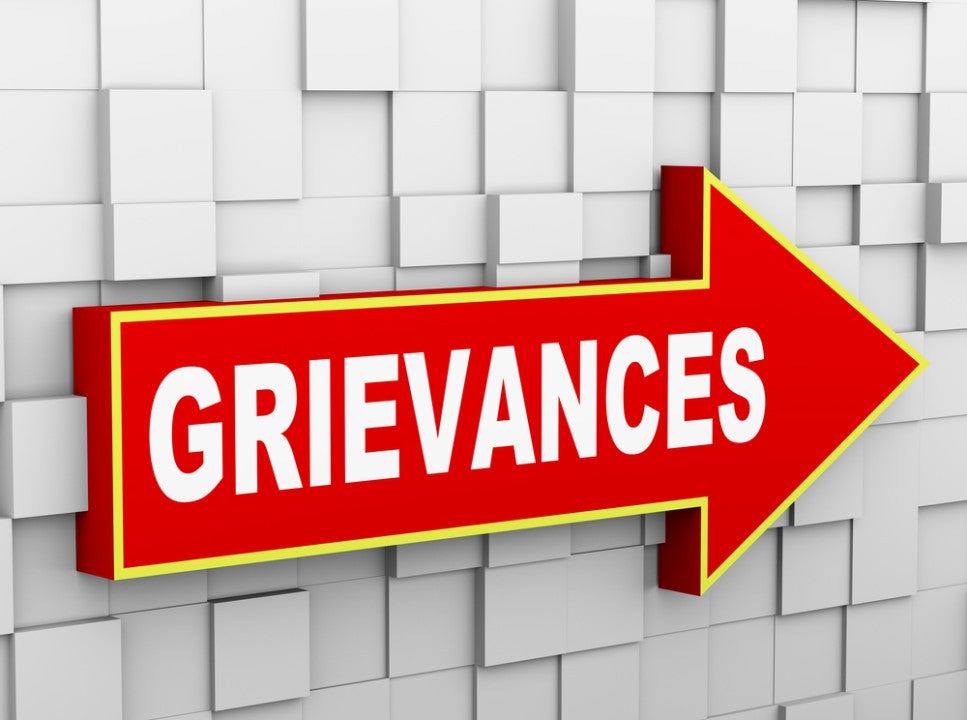What is a grievance?
A grievance is a violation of the employee’s rights on the job – whether under the collective agreement or under legislation. Not all complaints are grievances. They need to clearly violate either the contract or the law.
Grievances can be violations of:
- The contract (Collective Agreement)
- The law
- Past practice
- Employees’ rights
Contract violation: If the grievance is a clear-cut violation of the contract, it will be easy to prove. Please look at the collective agreement to find the article that you think was violated, then contact a shop steward. If it involves an interpretation of the contract, it might be a little harder, so knowing jurisprudence (arbitration decisions) will help.
Violation of a federal or provincial law: Here you will have the option of filing a grievance or going to the appropriate government agency to get redress – or both. Examples include a worker refusing work they consider unsafe, or a worker complaining of racial or sexual harassment by management. In such cases, the steward will go through internal union channels, and the decision may be made to lodge a complaint with the appropriate government agency at the same time (the union does not take the complaints to the government agency). See if your union has incorporated the relevant law in your collective agreement. Some unions specify and define the violation of provincial laws as grievances in their collective agreements.
Violation of a past practice in the workplace: This can be the basis for a grievance, particularly in areas where the contract is silent or unclear. Where a past practice has been violated by management, an employee may have a real grievance. The only relevance of past practice is to clarify (but not to alter) the collective agreement where it is ambiguous or unclear.
To be considered as a past practice, the circumstances must have been:
- Repeated over an extended period of time;
- Accepted explicitly or implicitly by both workers and management, e.g. by verbal agreement or in writing, without either side formally objecting; or
- While violating the contract, neither side has demanded that this part of the contract be enforced.
Violation of employees’ rights: Like “past practice”, the union must have a clear-cut, well-documented case. These kinds of grievances arise when management treats workers unfairly or unequally. These grievances are hard to fight and win so the local union should try to ensure that any problems concerning employees’ rights are safeguarded in writing – in the collective agreement.
Why do grievances or arbitrations take so long to settle?
There are several stages involved in any grievance. Article 26 of our collective agreement outlines the steps in our contract.
Some grievances are settled at stage one, and this typically only takes a week or two. However, many grievances go through to steps 2 – 3 and can take several months or more.
If no agreement can be reached, the grievance could go to arbitration. Article 27 of our collective agreement outlines the steps in our contract. Grievances that go to arbitration can take 1 – 2 years or more from the time the grievance was initiated through to resolution.
If you have any questions, please reach out to one of your stewards or anyone on the Local 748 Executive.
